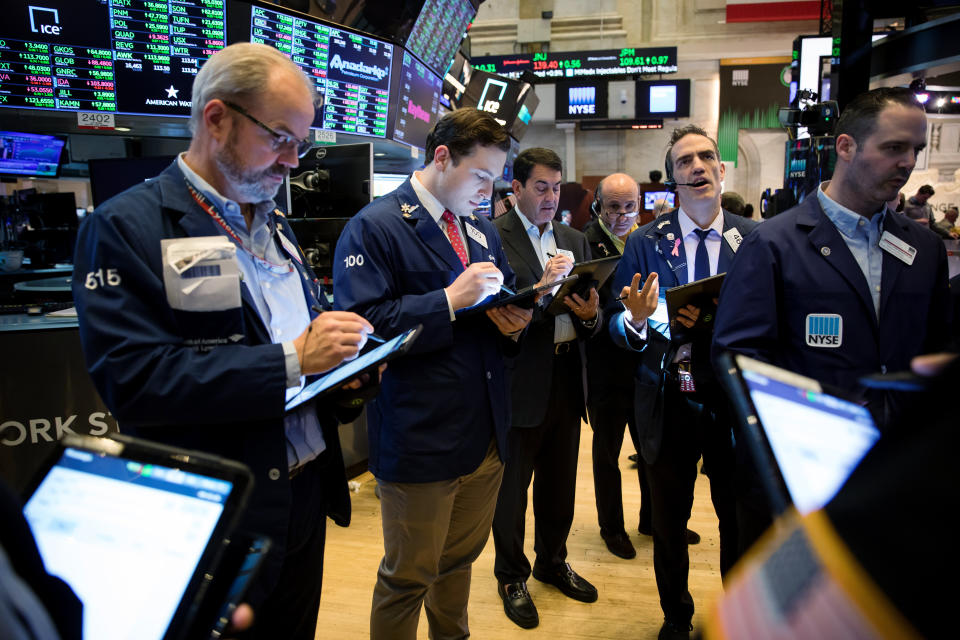The trade war has cost $5 trillion in stock market losses

The trade war is taking a toll on the stock market.
Deutsche Bank analysts say the tariff worries have led to $5 trillion worth of lost stock market returns.
“The bulk of equity returns comes from equity price appreciation and over the course of this recovery [since 2009] the S&P 500 (^GSPC) has risen in a clear trend channel with price appreciation at an annual rate of 12.5%. But equities have been in a range for 17 months now, coinciding with the beginning of the trade war,” the analysts said in a note to clients, led by Binky Chadha, Deutsche Bank’s chief strategist.
The 12.5% annual rate over 17 months translates into $5 trillion, the analysts said. At the beginning of 2018, 17 months ago, the S&P 500 hovered near 2,743. That’s a less than 1% gain.
The latest escalation of trade tensions came on Thursday night when President Trump tweeted about adding tariffs on goods imported from Mexico, saying the country isn’t doing enough to stop illegal immigration.
“The Tariff will gradually increase until the Illegal Immigration problem is remedied...at which time the Tariffs will be removed. Details from the White House to follow,” Trump tweeted Thursday. The tweet led to a plunge in stock futures.
This comes three weeks after Trump tweeted about raising tariffs on imports from China, which sparked a stock market decline.
Perhaps the most striking wrinkle of Deutsche’s analysis was that the $5 trillion figure represents 12 years worth of trade deficits between the U.S. and China.
“While we subscribe to the consensus view that US trade deficits reflect macro and not micro factors and trade policy initiatives are unlikely to have any impact on them, the point is that even if one did take the opposite view that the bilateral trade deficits are bad and that trade policy would fix them, the cost in terms of foregone equity returns is already worth 12 years of that bilateral merchandise deficit,” the analysts wrote.
Scott Gamm is a reporter at Yahoo Finance. Follow him on Twitter @ScottGamm.
More from Scott:
What the plunging 10-year Treasury yield says about the economy and stock market
Why one top strategist is bullish on tech even with lingering trade worries
Follow Yahoo Finance on Twitter, Facebook, Instagram, Flipboard, LinkedIn, and reddit.

